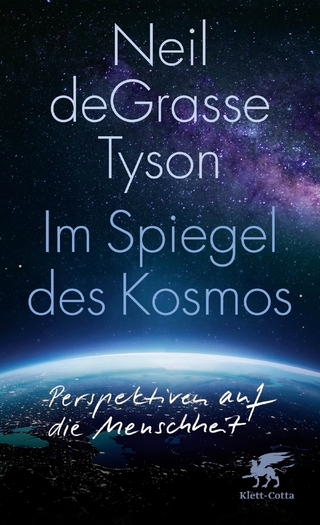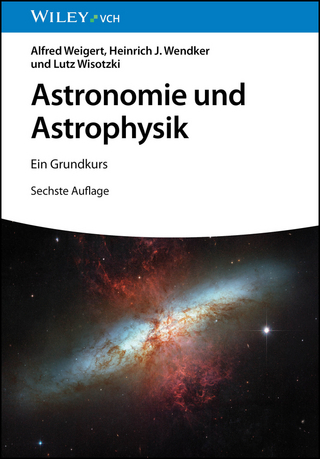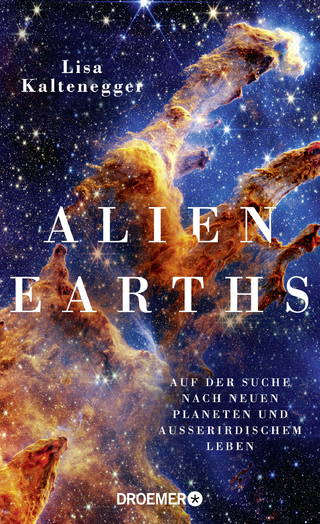
Further Adventures of the Celestial Sleuth
Springer International Publishing (Verlag)
978-3-319-70319-0 (ISBN)
From the author of "Celestial Sleuth" (2014), yet more mysteries in art, history, and literature are solved by calculating phases of the Moon, determining the positions of the planets and stars, and identifying celestial objects in paintings. In addition to helping to crack difficult cases, these studies spark our imagination and provide a better understanding of the skies. Weather archives, vintage maps, tides, historical letters and diaries, military records and the assistance of experts in related fields help with this work.
For each historical event influenced by astronomy, there is a different kind of mystery to be solved. How did the changing tides affect an army's battle plans? How did the phases of the moon affect how an artist painted a landscape? Follow these exciting investigations with a master "celestial sleuth" as he tracks down the truth and helps unravel mysteries as far back as the Middle Ages and as recent as the iconic 1945 photograph of a kiss inTimes Square on VJ Day. Topics or "cases" pursued were chosen for their wide public recognition and intrigue and involve artists such as Vincent van Gogh and Claude Monet; historical events such as the campaigns of Braveheart in Scotland and battles in World War II and the Korean War; and literary authors such as Chaucer, Cervantes, Shakespeare, Byron, and Edgar Allan Poe.
Donald W. Olson has been a professor of physics and astronomy at Texas State University since 1981. He received his B. S. (Physics) from Michigan State University and a Ph. D. (Physics) from the University of California at Berkeley, then went on to conduct post-doctoral research at Cornell University and the University of Texas at Austin. At Texas State University, Olson teaches an Honors College course linking science and the humanities, and the Texas State group has published more than 50 articles using astronomy to solve mysteries from art, history, and literature. In 2014, the American Association of Physics Teachers honored Olson with the Paul Klopsteg Award, which recognizes outstanding communication of the excitement of contemporary physics and astronomy to the general public. In 2015, Olson was named a Regents' Professor, the highest honor of the Texas State University system.
Preface.- Foreword.- Acknowledgements.- Part I: Astronomy in Art.- Chapter 1: Monet in London, J. M. W. Turner, and Ford Madox Brown.- Chapter 2: Monet in Étretat, Édouard Manet, and Vincent van Gogh.- Chapter 3: Caspar David Friedrich, Canaletto, and Edvard Munch.- Chapter 4: Monet in Le Havre: Origins of Impressionism.- Chapter 5: VJ Day Times Square Kiss, and Ansel Adams in Alaska.- Part II: Astronomy in History.- Chapter 6: Braveheart and the Battle of Stirling Bridge, the Discovery of the Ring Nebula, and the 1913 Great Meteor Procession.- Chapter 7: World War II and the Korean War.- Part III: Astronomy in Literature.- Chapter 8: Literary Skies Before 1800.- Chapter 9: Literary Skies After 1800.- Part IV: The Terrestrial Sleuth.- Chapter 10: J.M.W. Turner and the Great Western Railway, and John Everett Millais and an Ancient Oak.- Index.
"The book reads much like a Sherlock Holmes case file. Donald W. Olson describes how he and his team from Texas State examined paintings, battles, photographs, and literature through an astronomical lens, to locate, re(examine) and challenge their understandings of the works ... . For the higher education educator, I feel the book gives enough information to provide a roadmap of the kinds of information and tools one would need to endeavor on a similar quest." (Tasha Richardson, Physics in Canada, October 01, 2019)
"I thoroughly enjoyed this book as much as i enjoyed the original celestial sleuth, partly because some of my own work involves answering astronomical queries posed by other scientists, historians, and the general public.it is very satisfying to be able to use your knowledge of astronomy and physics to help people answer their questions and gain an understanding of their problem." (Steve Bell, The Observatory, Vol. 139 (1268), February, 2019)
"Astronomer Olson (Texas State Univ.) has extended his 'forensic astronomy' to tackle a new set of mysteries. Using tools such as a wide array of historical documents, railway timetables, weather reports ... he and his team of students seek to solve open questions that involve some facet of astronomy. ... Extremely well illustrated with appropriate references for each chapter, this text describes the processes used to solve these and many other questions. ... Recommended. Undergraduates and general readers." (M.-K. Hemenway, Choice, Vol. 56 (1), September, 2018)
| Erscheinungsdatum | 21.02.2018 |
|---|---|
| Reihe/Serie | Popular Astronomy | Springer Praxis Books |
| Zusatzinfo | XIV, 334 p. 179 illus., 137 illus. in color. |
| Verlagsort | Cham |
| Sprache | englisch |
| Maße | 168 x 240 mm |
| Gewicht | 584 g |
| Themenwelt | Sachbuch/Ratgeber ► Natur / Technik ► Weltraum / Astronomie |
| Naturwissenschaften ► Physik / Astronomie ► Astronomie / Astrophysik | |
| Schlagworte | Ansel Adams and astronomy • Astronomical forensics • Astronomy in Art • Astronomy in history • Canaletto night time views in Venice • Caspar David Friedrich and moon • Claude Monet and the night sky • Edouard Manet and night sky |
| ISBN-10 | 3-319-70319-6 / 3319703196 |
| ISBN-13 | 978-3-319-70319-0 / 9783319703190 |
| Zustand | Neuware |
| Haben Sie eine Frage zum Produkt? |
aus dem Bereich


